“KINDERTRANSPORTS” FROM VIENNA TO GREAT BRITAIN 1938/1939
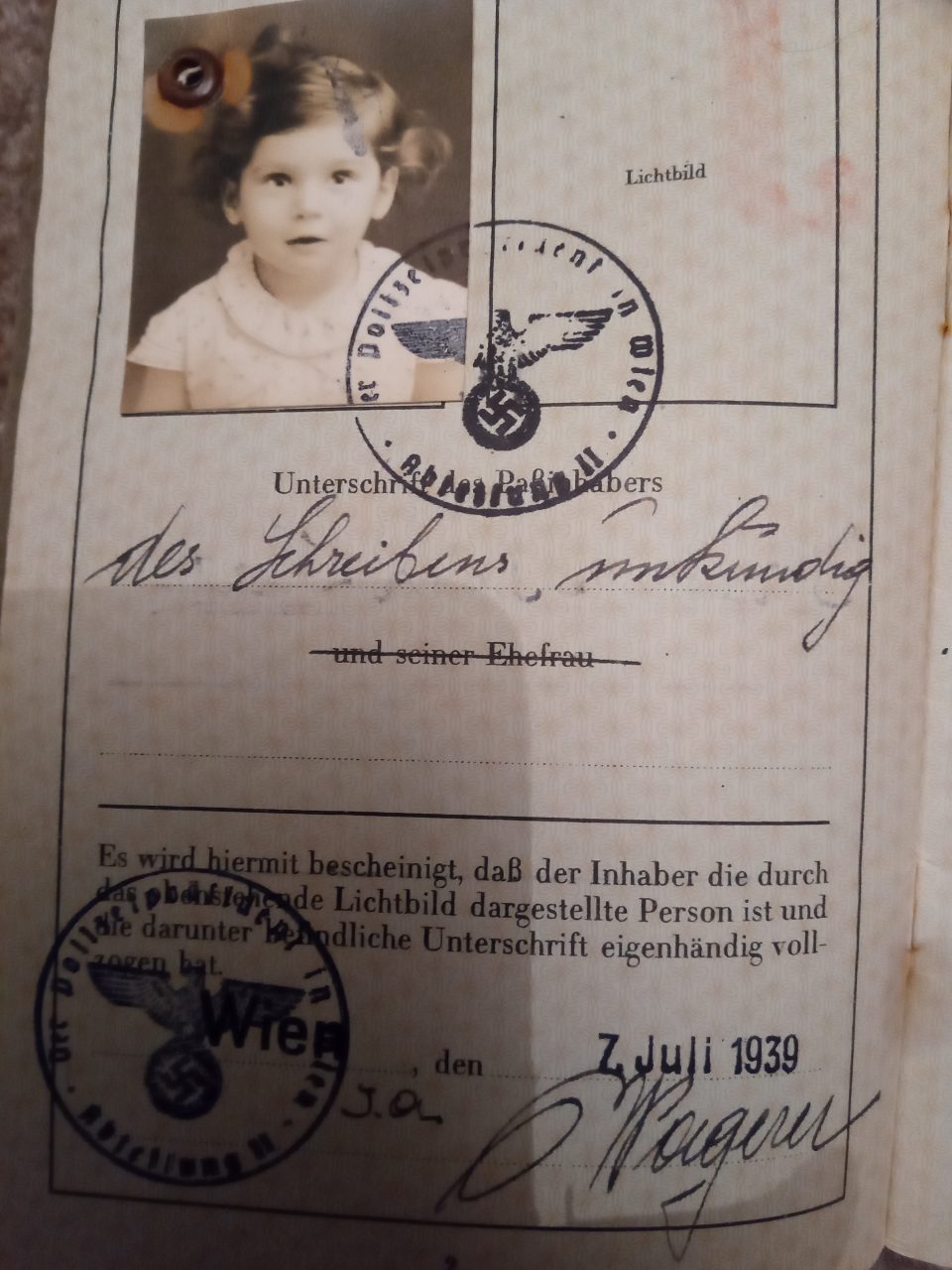
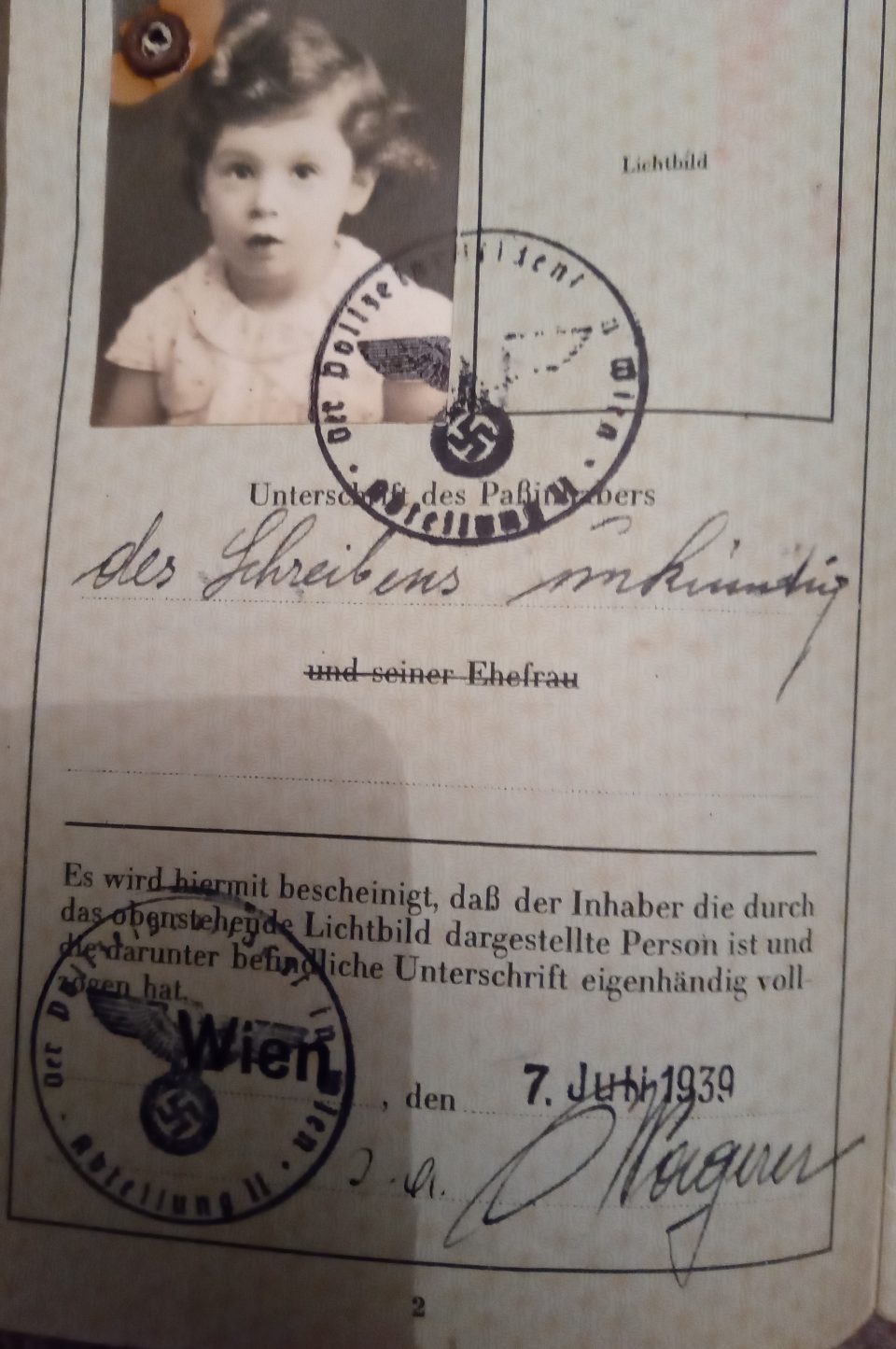
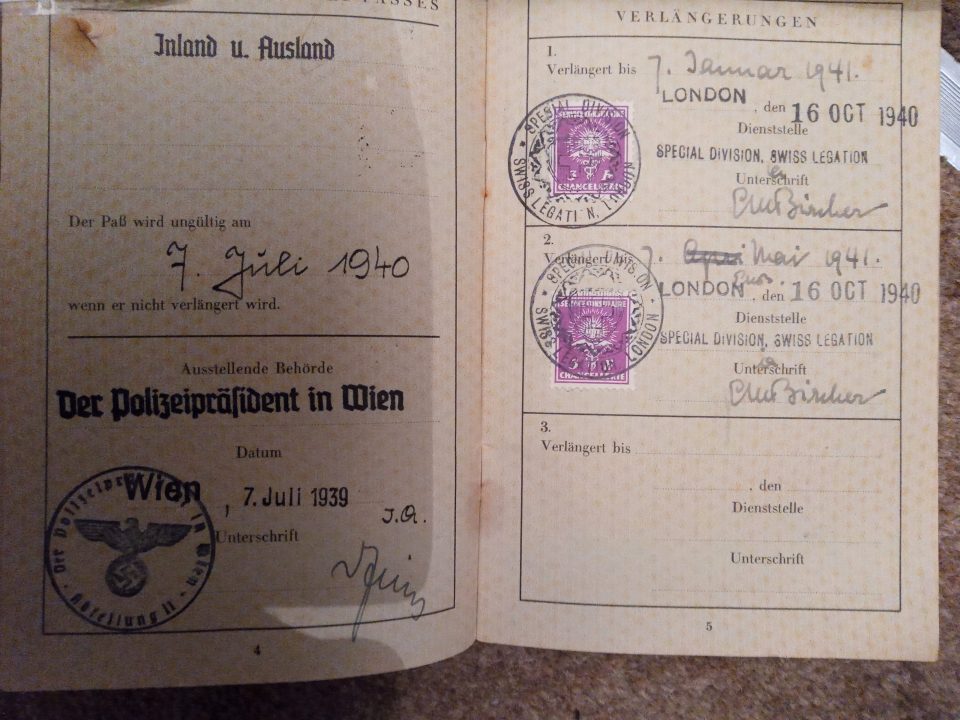
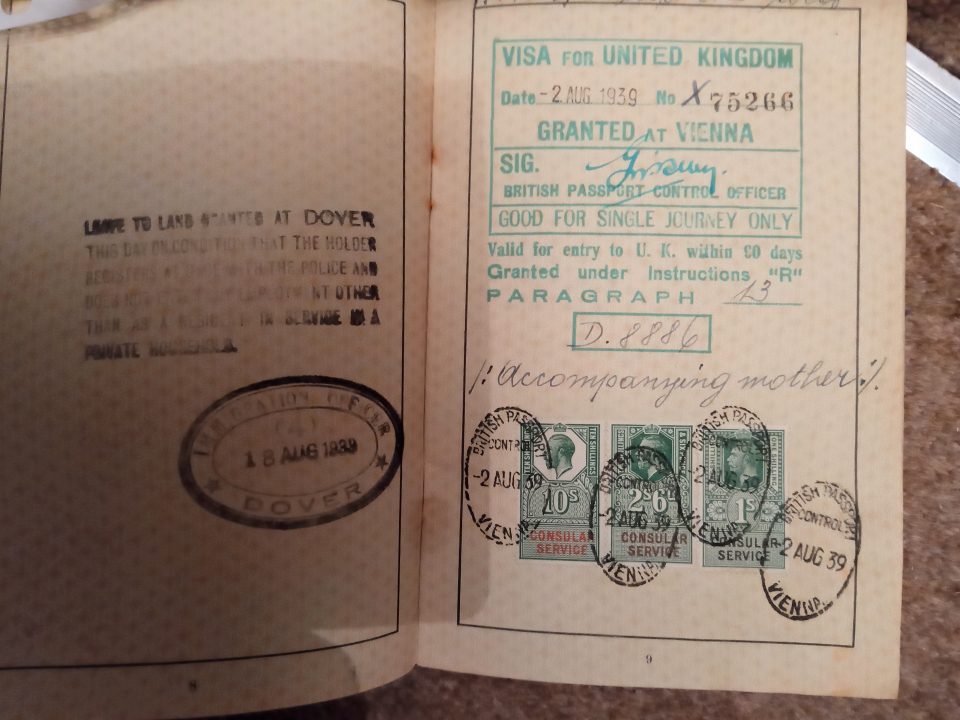
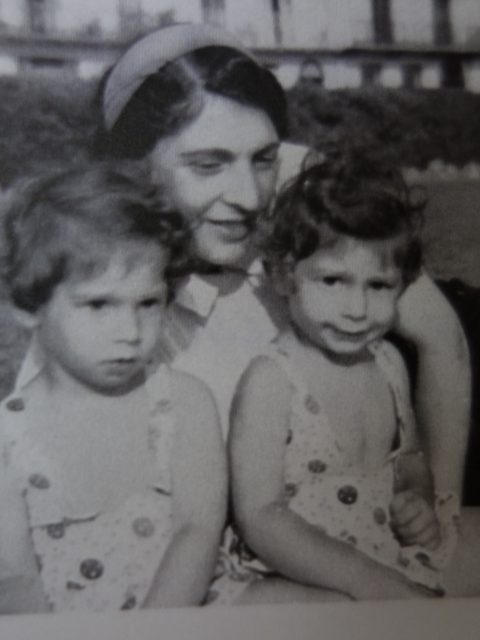
Agi with her twins, Susi and Josi
Agi Katz, the younger sister of my grandmother had found refuge in England as a maid in the household of her sister Käthe’s mistress, but she could not bring her two-year-old girl twins, Susi and Josi with her. Käthe had helped to organise from across the channel to have the girls transported via a “kindertransport” to England to Quaker foster families. Unfortunately the twins had to be separated not only from their mother, but also from each other, which caused serious and long-lasting emotional damage. They were reunited with their parents after the war. The family then decided to become British citizens and remain in the UK. In 1948 the Evening Standard printed a picture of the twins then aged 12, “Flowers at Victoria Station. 12-year-old twins Susan and Josephine Katz of Isleworth (Middlesex). They were waiting for their grandparents, septuagenarians Herr and Frau Ignaz Sobotka to arrive from Vienna for a holiday here.” (see below)
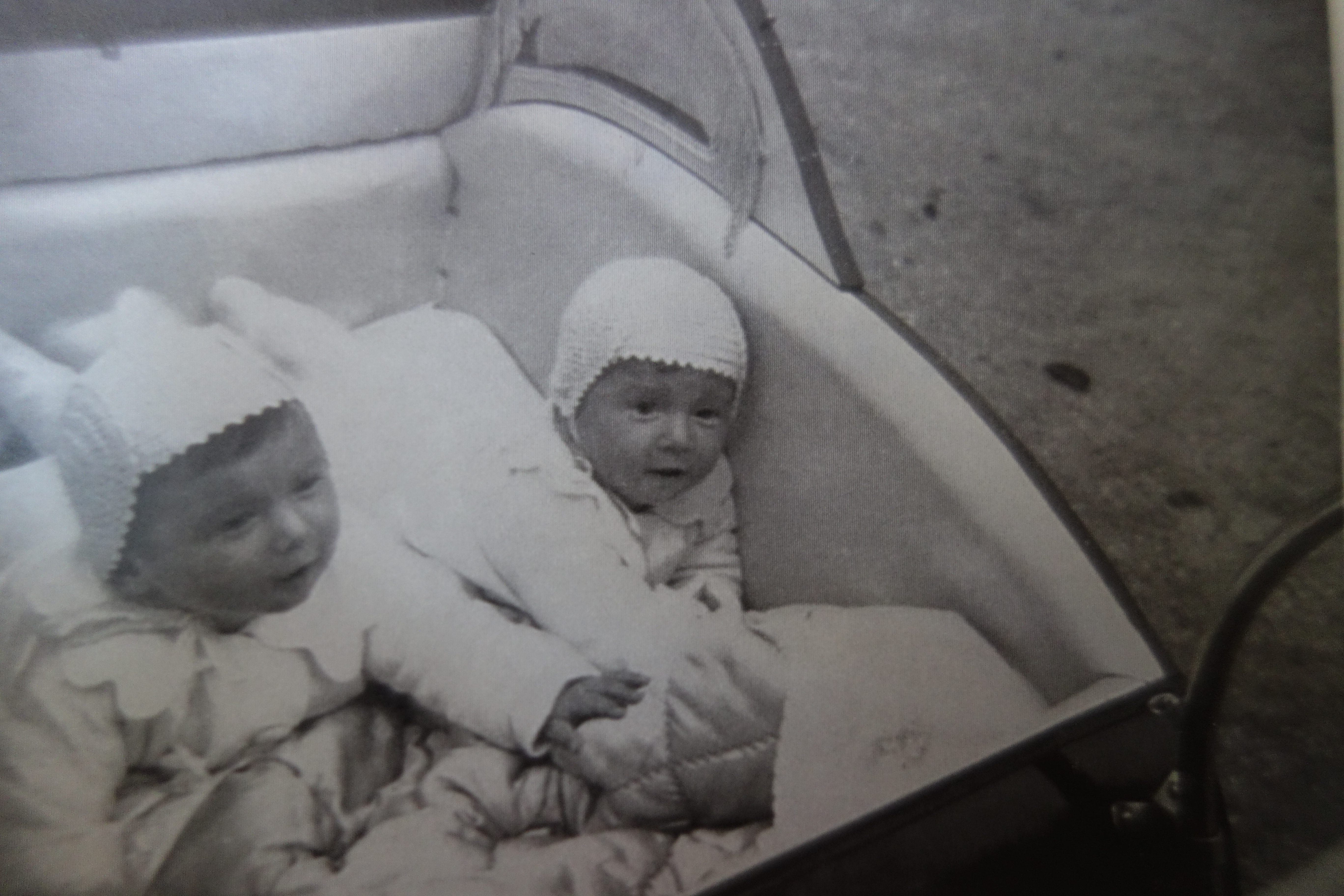
The twins, Susi and Josi, still in Vienna
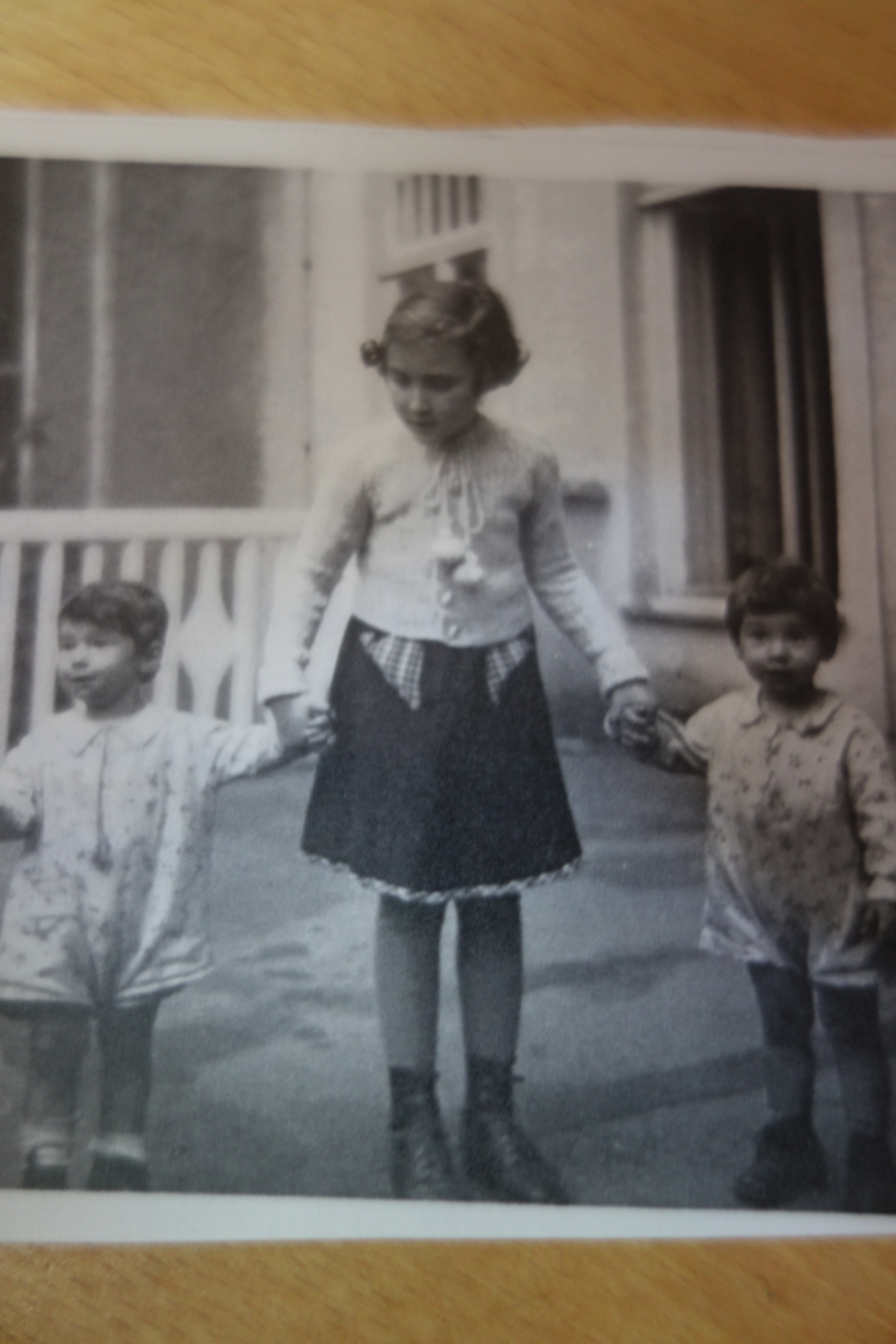
With the permission of the British, Dutch and Swedish governments aid organisations in “Greater Germany” (Germany and the occupied territories) organised kindertransports in 1938 and 1939 on special trains to send endangered children west to safety. The children on board these trains left their parents and other family members at the railway stations of Prague, Vienna, Frankfurt, Berlin, Leipzig, the free city of Danzig and the Polish city of Zbonszyn. Descriptions and eye witness reports abound of chaos, tears and the pain of the parents. The kindertransports from Austria took the train route through Germany via Cologne, over the border to the Netherlands, up to the Hook of Holland, across the North Sea by boat to dock at Harwich. Some of them were sent to London from there, others were transported to Dovercourt Bay, a holiday camp taken over to accommodate arriving youngsters. Newspaper reports describing the violence of the November pogroms prompted public sympathy and government action in the UK. The Times reported on 14 November 1938, “The position of Austria’s Jews is becoming daily more precarious… Although the more violent demonstrations have ceased the Nazis have prohibited non-Jewish stores, restaurants and cafés from selling to Jews. As no Jewish shops have been allowed to reopen the effect has been to reduce many Jews to a position dangerously near starvation.” The plight of children struck an especially resonant chord. Stories circulated in the UK about attacks against Jewish orphanages and children roaming the countryside on the verge of starvation.
…
